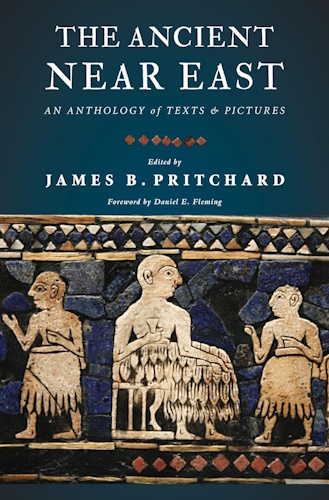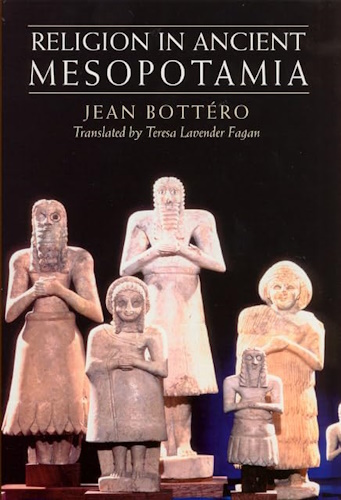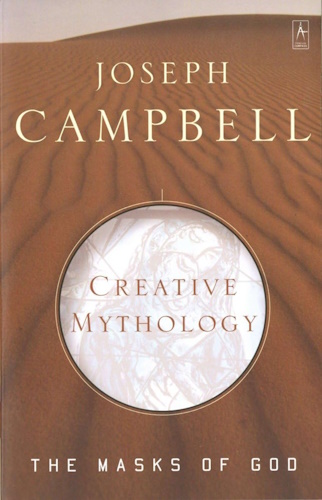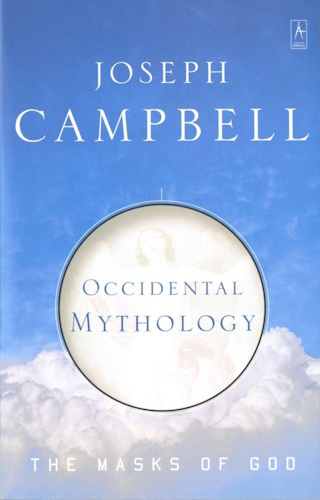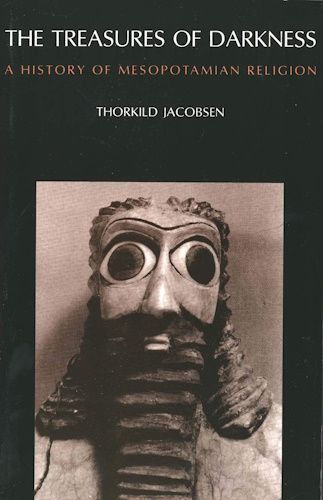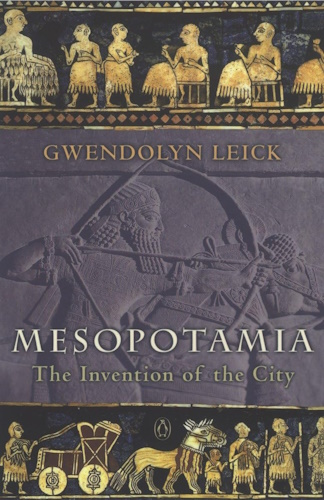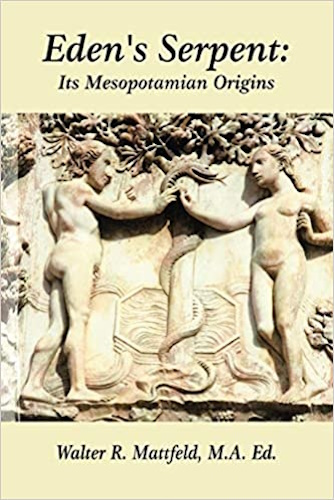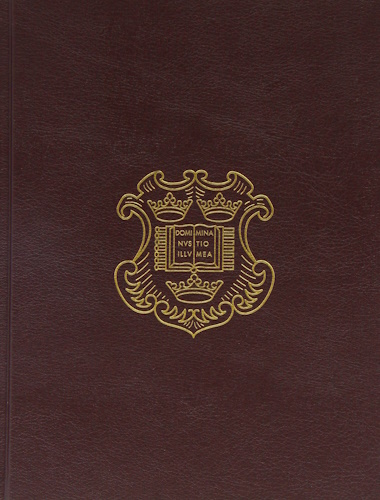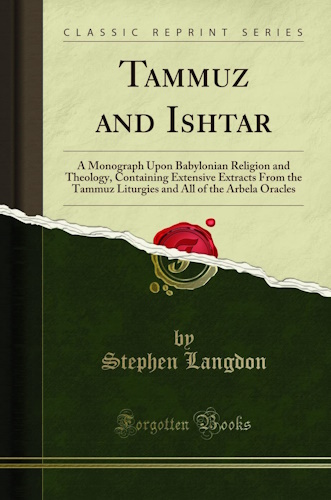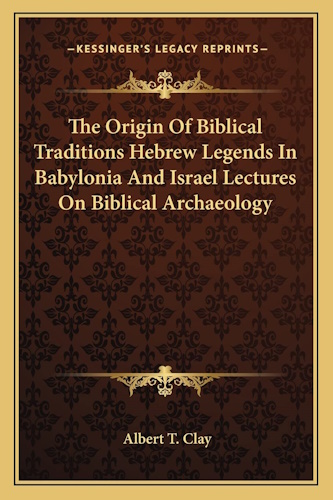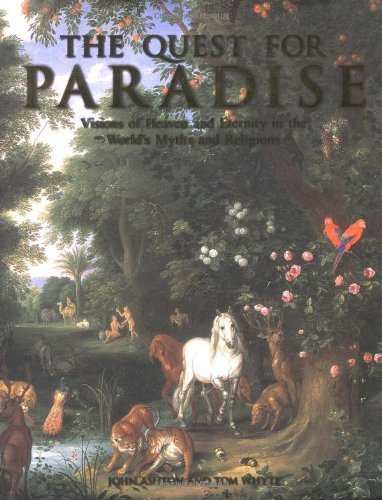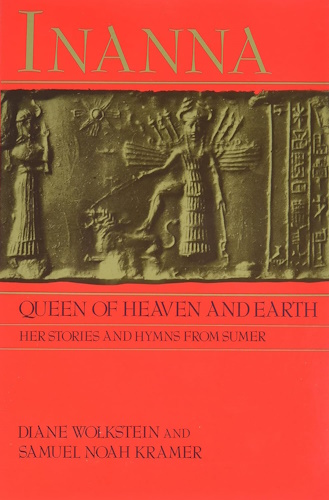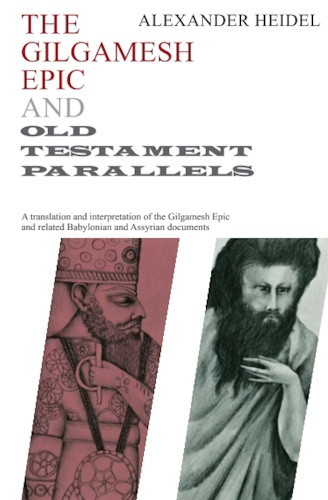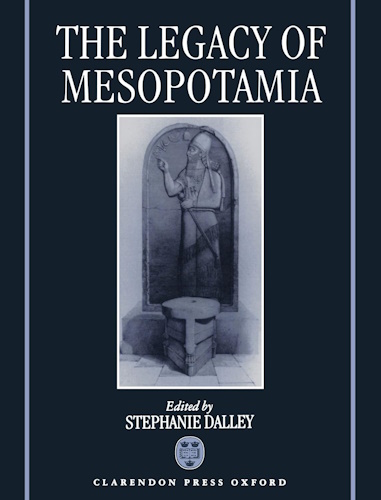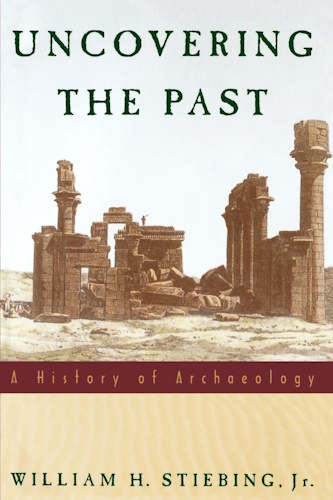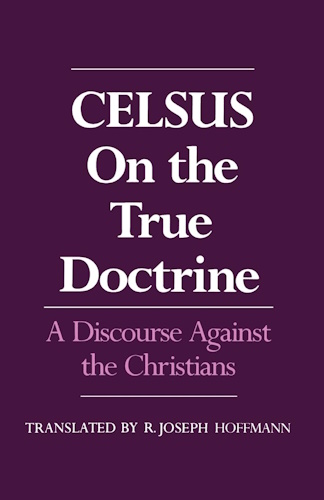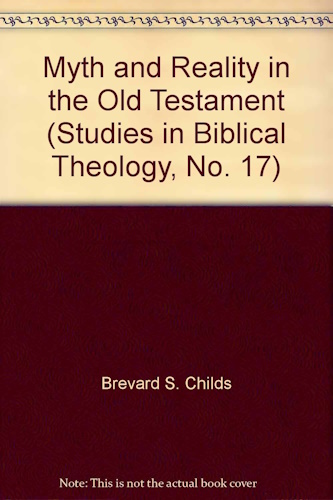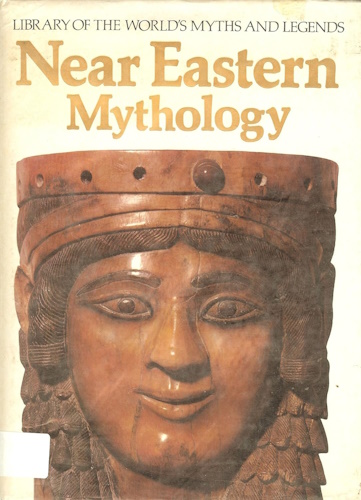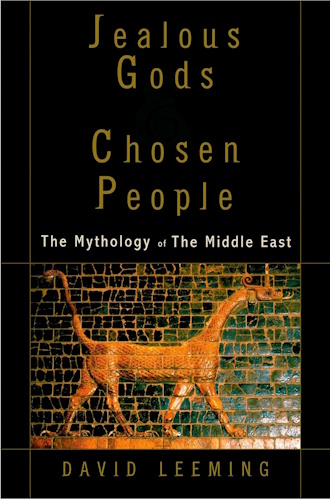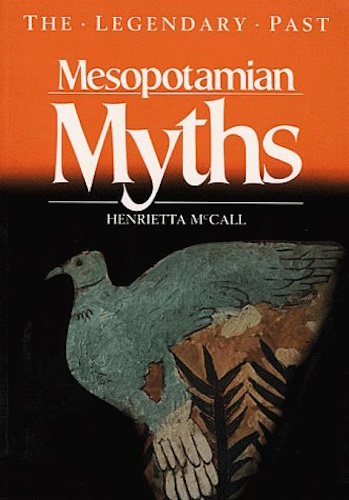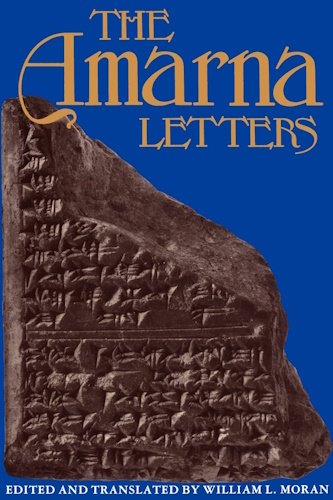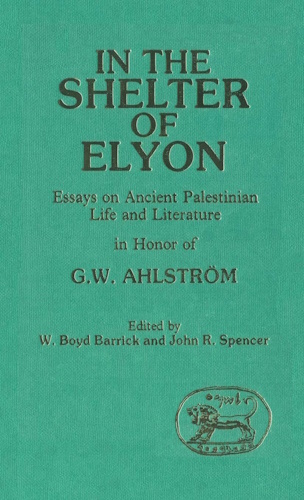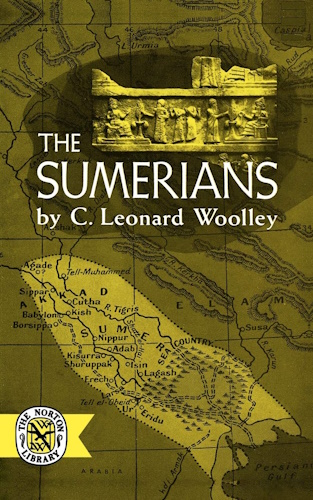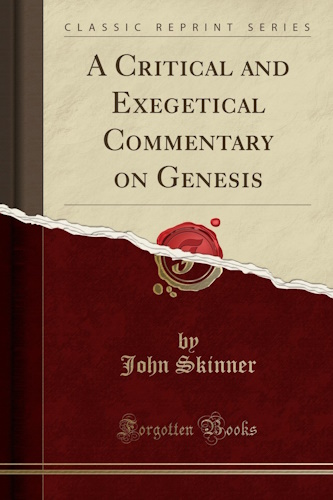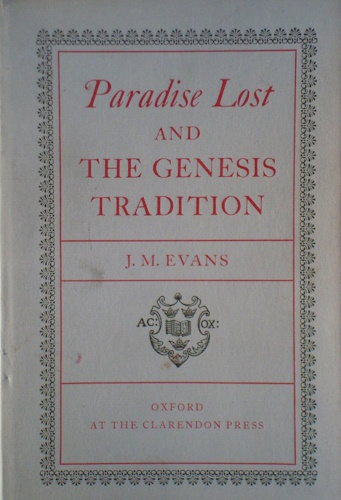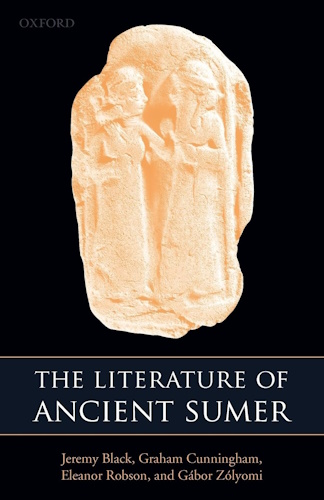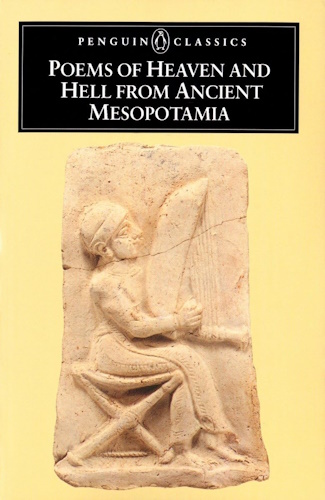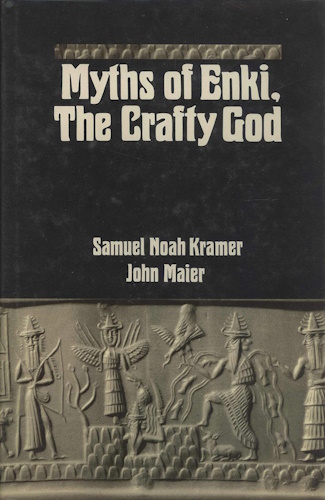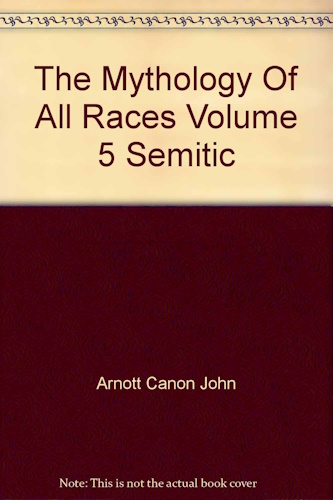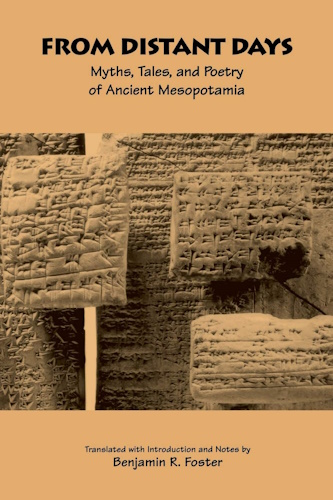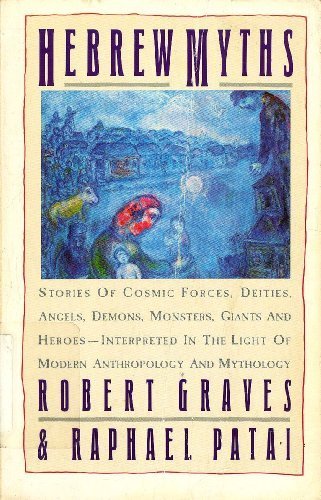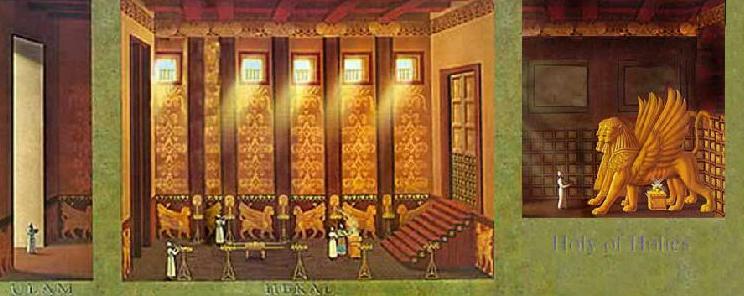![]()
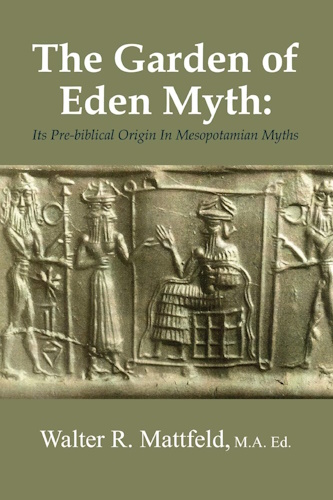
Bible Origins
The Pre-Christian Origins
of
The New Testament's
Demons·Daemones·Daimones
by
Walter Reinhold Warttig Mattfeld y d la Torre, M.A. Ed.
e-mail contact
11 October 2000
Revisions through: 08 October 2009
![]()
I highly reccomend that you read the on-line Wikipedia's article on the Pre-Christian Greek Origins of Daemons. Please click here to access that _very_finely_researched_ article then click here to read their article on Christianity's Demons _before_ reading my own article which is below.
Unknown to many individuals today is the fact that the word demon, used of evil spirits or beings who inhabit the earth, is actually derived from the Greek word daimon/daemon. Also generally unknown to the public at large is the historical evolution and transformation of the Greek daimon from the 8th century B.C. to Early Christian times, the 1st century A.D. This article briefly explores this evolution and transformation and its impact on Christianity.
The earliest Christian writings in the New Testament are those of Paul, believed to have been composed ca. 50-60 A.D. He employs the Greek word daimon/daemon, rendered in English bibles as demon, to refer to evil spirits or beings:
"...what pagans sacrifice they offer to demons and not to God. I do not want you to be partners with demons. You cannot drink the cup of the Lord and the cup of the demons. You cannot partake of the table of the Lord and the table of the demons.." (1 Corinthians 10:20-21 RSV)
Professor Rose on daimones:
"But to return to Plutarch, and those who thought with him; they were probably many. Despite his optimisic view concerning the gods generally, he could not but see that there were not only myths representing some of them as behaving in a way quite inconsistent with any developed ideas of deity, but rites which seemed to aim at propitiating unfriendly powers and inducing them, not to do any good, but simply to refrain from doing harm. He, and many others, found a solution for this difficulty in the conception of daimones. This word, which to begin with seems to have been merely a vaguer quivalent of "gods", had tended from Hesiod onwards to signify superhuman beings of something less than divine rank, and by the time Plato was an old man, i.e., about the middle of the fourth century BC, it was taking on a quite different meaning.
Plato perhaps, his immediate followers and successors certainly, elaborated a new doctrine concerning these beings. Their proper abode is neither heaven, which belongs to the gods, nor earth, which is the home of men and lower animals, but the air, which lies between heaven and earth. Corresponding to this intermediate dwelling-place is their intermediate nature. They are superior to men, inferior to gods. A god is morally perfect, but a daimon is not necessarily so; he may be good or bad, and in any case he is subject to passions, somewhat as men are, and therefore capable of doing unreasonable things, of departing from strict justice to serve some personal end, of being angry or amorous, and so forth.
According to some at least of the elaborators of this theory, a daimon is not, or not always, an immortal being, nor is he bodiless. Once such a belief gained credence, as it seems to have done early, and not only in philosophic circles, it inevitably grew and ramified, all manner of further complications being introduced, until it passed into the angelology and demonology of Christian speculators, such as the ingenious author who wrote under the assumed name and personality of Dionysios the Areiopagite, St. Paul's Athenian convert.
But long before that, or before Christianity began, it served the pious by providing a way out of difficulties. If a myth, authoritive through its age or its association with venerable rites, was morally unpleasing, it might still be accepted and the believer's conscience rest undisturbed, by the simple assumption that it referred to daimones, not to gods proper. The former might indeed, being ethically imperfect, fight one another, make love to mortal women, be banished from the society of their kind for their offenses, or even die, none of which things is becoming to divine majesty. The Apollo who killed the Kyklopes because they had made the thunderbolts which slew his son Asklepios was not a true god, but a daimon bearing the god's name. If his oracles ceased, as for a while, they showed signs of doing, the reason was entirely to his credit, for he was becoming so exalted that contact with matter was no longer possible for him. If rites of aversion existed, they were aimed at daimones of an inferior order, who had yielded, as a man might do, to their own baser impulses, and so did harm or must be bribed into going away. Magic, also, became explicable. The sorcerer did not really influence gods by his charms, but it might be that he was powerful enough to press daimones into his service and make them help him in his not always worthy purposes.
So convenient a theory was almost universally accepted, and when the long controversies between Christian apologists and the supporter of the old religions arose, both sides made use of it, the Christians maintaining that all daimones were evil and thirsted to destroy and mislead men; hence the meaning of "demon" in modern languages."
(pp.109-110, H.J. Rose. Religion in Greece and Rome. New York. Harper Torchbooks. Harper & Row, Publishers. 1959, pbk)
Rose on Christianity's indebtedness to Greek metaphysics:
"The resulting theology was Greek in form and largely also in content. In particular, its eschatology and its conception of supernatural beings below Divine rank owed everything to Greek speculations. The daimones divided into angels and devils; Hell, Purgatory and Paradise had long been current ideas in Greece; that the souls of the righteous should attain to more than mortal condition was a familiar enough conception, for it had long been taught that the soul of a good man might become a "hero", a hero a daimon, and a daimon ultimately a god. Even the location of the places of reward and punishment were in accordance with existing ideas. Heaven being the natural abode of the soul in Platonic and other philosophies, while Hell is the descendant of Tartaros, the traditional prison of rebels against the classical gods." (p.137, Rose)
Hornblower on daimones:
"daimon. Etymologically the term daimon means 'divider' or 'alloter'; from Homer onwards it is used mainly in the sense of operator of more or less unexpected, and intrusive, events in human life. In Homer and other early authors, gods, even Olympians, could be referred to as daimones...Hesiod introduced a new meaning: the deceased of the Golden Age were to him wealth-giving daimones functioning as guardians or protectors. This resulted in the meaning 'personal protecting spirits', who accompany each human's life and bring either luck or harm. A lucky, fortunate person was eudaimon (with a good daimon), an unlucky one was kakodaimon (with a bad daimon, from the 5th century B.C.E.).
Plato used all the earlier meanings of the term and introduced a new one...he describes guardian-daimones who accompany man during his life and after his death function as prosecutor or advocate...Completely new is Plato's concept of daimones as beings intermediate between god and men. This notion was adopted by all subsequent demonologies. A pupil of Plato, Xenocrates, argued for the existence of good and evil daimones. This is essentially the picture accepted by the Stoa and in Middle and New Platonism (especialy Plutarch, Porphry and Iamblichus). In later antiquity the existence of semi-divine beings helped to solve problems connected with the emergence of monothesistic ideas and the inherent problems of theodicy. It also offered a solution to the question of the true nature of the old polytheistic gods. They now acquired the staus of (good) daimones (see angels). All three solutions were gratefully adopted by Christian theologians: the angels from their biblical heritage took over the positive functions of good and beneficent intermediaries; all daimones, now revealing the true nature of the pagan gods, were interpreted as both the embodiment and the cause of evil and sin against the will of God."
(p. 426, "daimon," Simon Hornblower & Antony Spawforth, Editors. The Oxford Classical Dictionary. Third Edition. Oxford & New York, Oxford University Press, 1996, ISBN 0-19-866172-X hdbk)
Ferguson on demons/daimones brackets [ ] are mine for time periods involved:
"The word daimon ('demon") underwent important changes in meaning. In general it referred to a power that accompanies persons and dispenses destiny. In Homer it is used of impersonal power or of the gods collectively and indefinitely ("the divine") as the dispenser of individual events. Hesiod classified rational beings as gods, demons, heroes, and people; by demons he meant men of the golden age translated to blissful immortal life. His classification prepared the way for demons to be considered lesser divinities (cf. Acts 17:18) or heavenly intermediaries between the gods and human beings. Socrates referred to a demon that warned him against certain actions (Plato, Apology 31D, 40A), thus giving to the demon a function almost like the conscience...Plato's varied the use of the term influenced its future development. One work says that demons are the sons of gods by nymphs or other mothers, serving as interpreters between gods and people ([?] Epinomis 984E); in this sense demon is a generic term for divine intermediaries. Plato's writings also regard the demon as a destiny spirit somewhat like a guardian angel as a companion of persons (Phaedo 107D; Republic 617D; Statesman 271D, 272E) or of cities as well as of individuals (Laws 713C; 738D). He also refers "demon" to the highest and divine element in a person. From the idea of a demon accompanying each person came the use of the word as virtually equal to "fate" (but as referring to the personal destiny of an individual and without the capriciousness of Tyche).
Xenocrates, Plato's student, systemized demonology. He and later philosophers listed three classes of demons: permanetly disincarnate beings, souls of the deceased, and the soul "in" or intelligence accompanying us. He ascribed human passions to them and made the distinction that some demons were good and some bad. From this came the idea that each person has two demons, one good and one bad. By the fourth century BC the word was deteriorating into use only for unlucky happenings. Since one avoided putting the blame for evil on the gods, they were attributed to the demons. Thus was the way prepared for regarding demons as evil beings. Xenocrates [339-314 B.C.] and Chrysippus [280-207 B.C.] allowed for evil as well as good demons, but Plutarch [50-120 A.D.] most developed the idea. He and Apuleius [born ca. 123 A.D.] provide us with the developed demonology of early Christian times. Demonic forces were everywhere and were constantly affecting life. Demons were important as intermediaries between human beings and the gods, who were increasingly made transcendent, and a way of reconciling the philosophical movement toward monotheism with the polytheism of popular religion. The admission that the gods of polytheism were "demons" played into the hands of Christian apologists. Also, to the demons could be transferred everything that philosophy regarded as unfitting in the gods. The apologists' claim that pagan religion was inspired by demons, who had a gross enjoyment of animal sacrifices, corresponded to the later Greek philosophical view that attributed the sacrifices of popular religion to the demons but reserved a rational worship for the immaterial gods (see Porphyry and Iamblichus).
Pre-Christian Judaism had already begun to take over the word demon in that sense of intermediate evil beings which is so evident in the Christian gospels. Belief in demon possession of individuals was widespread and led to the practice of exorcism to expel demons- by pagans, Jews, and Christians."
(pp. 220-221, Everett Ferguson. Backgrounds of Early Christianity. 2nd Edition, William B. Eerdmans Publishing company, Grand Rapids, Michigan, [1987], 1993, ISBN 0-8028-0669-4 pbk)
Of interest is the notion that the daimones were set by the Greek gods to be "watchers over mankind" as this notion crops up in the Book of Enoch which has "watcher angels" becoming demons, mating with human women and turning the world into an evil place. That is to say Hellenistic Greek ideas of "watcher daimones" apparently has been adopted and adapted by certain Jewish intellectuals into "fallen watcher-angels or demons":
"DEMONOLOGY. The word demon (or daemon) is the Greek daimon, the etymology of which is too doubtful to explain its original signification (see Pott, Etym. Forsch., ii. 1, 947).
Setting aside the use of the word in the general sense of deity (as in Iliad, i. 222), we find it employed in classic Greek literature with the more specific meaning under which it becomes an important term in the science of religion. Among the most instructive passages are those in which Hesiod tells how the men of the golden race became after death demons, guardians or watchers over mortals (Hesiod, Op. et Dies, 109, &c; see Welcker, Griech. Götterlehre, vol. i. p. 731), and where the doctrines of Empedocles, Plato, and other philosophers are set forth, showing how the demons came to be defined as good and evil beings intermediate between gods and men (Plutarch, De Defect. Orac., De Isid. Et Osir., De Vitand. Aer. Alien., &c.; Plato, Symposion, 28; Diog. Laert., Vit. Pythag.; see Grote, History of Greece, vol. i.chaps. 2,17)."
(http://www.1902encyclopedia.com/D/DEM/demonology.html)
That demons controlled the earth is reflected in Greek Hermetic literature. The following excerpts are from a recently released book by Salaman et al, titled "The Way of Hermes" (the writings therein believed to have been composed ca. 1st-3rd centuries A.D. at Alexandria, Egypt). Nous is variously understood to be God, Life and Light, the Word (Logos), and the equivelant of the Christian "Holy Spirit."
"For the idea that sins are provoked by astral demons, see CH16.15-16; 9.3; SH 6.11." (p.120, Clement Salaman, et al. The Way of Hermes [The Corpus Hermeticum & the Definitions of Hermes Trimegistus to Asclepius], Rochester, Vermont, Inner Traditions Publishers, 1999/2000, ISBN 0-89281-817-4, hdbk)
"15. The spirits who are set as attendants beneath each star according to what each birth merits, takes possesion of each one of us at the moment we are born and given breath...Now when these spirits enter the two parts of the soul through the body, each agitates the soul according to its activity. But the rational part of the soul stands free of the tyranny of these powers and remains fit to receive God.
16. When by way of the Sun that rational part in a man is illuminated by a ray of light (and such men are few), the spiritual powers cease to affect them. For no spirit or god has any power against one ray from the Supreme God. But all other men are borne and led, both body and soul, by the powers, whose activities they dearly love. It is their thinking which is misled and misleads, not the love. Thus the powers have control over all our affairs upon earth through the instruments of our bodies. This control Hermes calls destiny." (p.77, Salaman)
9.3 Nous brings forth all concepts, good ones when it receives the seed from God, and opposite when it receives them from one of the demons, there being no part of the cosmos that is free from demons. As the demon receives its illuminaton from God, it steals in and sows the seed of his own workings, and Nous brings to birth what has been sown: adultery, murder, violence to one's father, sacrilege, ungodliness, strangling, suicide from a cliff, and all such other demonic actions...Evil we say, must needs live down here in its own country. Its country is the earth, but not the cosmos as some blasphemously affirm...As I have said, the materialist, in the midst of evil, receives the seed of his understanding from the demons; the other men, surrounded by goodness, are in their being preserved by God." (pp.42-43, Salaman)
"Because the Father of all is constituted out of Light and Life, whence Man has been begotten...The truth is: Light and Life is God and Father, whence Man is begotten...By a life full of love they win the favour of the Father and lovingly they give thanks, praising and singing hymns to him in due order. Before giving up the body to its own death, they shut down the senses, having seen their effects; or rather, I Nous, will not allow the activities of the body which assail them to have effect. Being the gatekeeper I shall close the entrances to evil and dishonourable actions, cutting off their thoughts. As for those without Nous, the evil, the worthless, the envious, the greedy, murderers, the ungodly, I am very far from them, having given way to the avenging spirit, who assaults each of them through the senses, throwing fiery darts at them..." (p.22, Salaman)
A Greek historian and writer, called Pausanias (2nd century A.D.), mentions that in his day, some daimones/demons were believed to inhabit the underworld, he mentions one in particular who devours the flesh of the sinners:
"The guides at Delphi say that Eurynomos is one of the daimones in Hades, and that he devours the flesh of the dead, leaving them only their bones."
(p.29, "Classical Hades," Alice K. Turner, The History of Hell. Harvest Books, Harcourt Brace & Co., San Diego, New York, London, 1993, ISBN 0-15-600137-3 pbk)
Plutarch (ca. 50 -120 A.D.), another Greek historian and writer, mentions daimones/demons throwing the unrighteous into Lakes of punishment in the underworld:
"Plutarch...his vision of Thespesius is of considerable interest. Its form is like that of the Er story: a reprobate named Thespesius suffers a severe fall and is left for dead. Three days later as he is about to be buried, he revives and tells of his near-death vision...he saw souls of the newly dead...in fiery bubbles...a cleansing punishment was meted out by Dis the judge, but some cases were incurable, and one of the Erinyes chased these from place to place, tormenting them with miseries till they fell into the abyss...Souls writhed in torment, some with their entrails torn out. Three dreadful lakes were near, one of boiling gold, one of freezing lead, one of iron shards, and demons tossed souls from one to another," (p.39, Turner)
From the Hermetic literature cited above, it becomes obvious, to me at least, that Christianity is drawing some of its imagery about demons and their power over mankind from Greek speculative thought. The blaming of daimones for evil in the world is a spin-off from Platonic thought that postulated God was Good, he wanted/lacked nothing, wasn't envious, and he was incapable of evil. Plato derided Homer and Hesiod for portraying the gods as sources of good AND EVIL and for being lusters after women, quarreling and fighting amongst themeselves. As a result of Plato's new image of God as being only THE GOOD, later Greek speculation sought to place blame for evil on the daimones.
Plato, on God being only Good, and incapable of evil:
"...for the good we must assume no other cause than God, but the cause of evil we must look for in other things and not in God...we must not accept from Homer or any other poet the folly of such error as this about the gods...Zeus is dispensor alike of good and evil to mortals."
(Republic 2.379d,e, p.626, Edith Hamilton & Huntington Cairns, Editors. The Collected Dialogues of Plato Including the Letters. Bollingen Series LXXI. Princeton University Press. [1961] 1996, ISBN 0-691-09718-6 hdbk)
"But as to saying that God, who is good, becomes the cause of evil to anyone, we must contend in every way that neither should anyone assert this..." (Republic 2.380b, p.627, Hamilton)
The Greek Hermetics further developed Plato's idea of God as being THE GOOD or SUPREME GOOD personified:
"No other beings spoken of as gods, men or divine powers can be even in the slightest degree good, but God alone. God is this alone and nothing else. All other things are contained within the nature of the Supreme Good, for they are body and soul, but themselves have no place to contain the Supreme Good. The greatness of this good is such that it is the reality of all beings; of the bodily and of the bodiless, of the sensory and of the subtle. This is the Supreme Good, this is God. Therefore, do not call anything else good since then you blaspheme, and do not ever call God anything but good since again you blaspheme...For the nature of God is One: Supreme goodness; God and goodness are one generative power, from which come all generations. He who gives all and takes nothing is good. God gives all and takes nothing. So God is the Supreme Good and the Supreme Good is God. The other name is that of the Father, by virtue of him being the author of all things; for the Father's nature is to create." (pp. 28-29, Salaman)
I note that Christ rebuked an admirer who called him "GOOD Master," claiming that only God is GOOD. Is this Platonic thought being assimilated into and preserved within Early Christianity ?
"And, behold, one came and said unto him, GOOD Master, what good thing shall I do, that I may have eternal life?" And he said unto him, "Why callest thou me GOOD? There is NONE GOOD BUT ONE, THAT IS, GOD; but if thou wilt enter into life, keep the commandments."(Matthew 19:17-21 KJV)
"Someone came to Jesus with this question: GOOD Master, what must I do to have eternal life ? When you call be GOOD you are calling me God," Jesus replied, "For God alone is truly GOOD." (Matthew 19:17-21, The Living Bible, Paraphrased)
Jesus' reply is in stark contrast to Job's assertion that Evil comes from God, not just Good (Job's view of God is more Homeric, which Plato criticized):
"Shall we receive good at the hand of God, and shall we not receive evil? In all this Job did not sin with his lips." (Job 2:10 RSV)
Plato on daemones ruling mankind ("tribes") on behalf of God in the reign of Cronus, these daimones insuring justice on the earth prevails :
"Over every herd of living creatures throughout all their tribes was set a heavenly daemon to be its shepherd." (Statesman 2.71d, p.1037, Hamilton)
Plato on daemones (superior spirits) being set up to watch over and direct the affairs of man on God's behalf in the age of Cronus:
"Well, the god, in his kindness to man, did the same; he set over us this superior race of spirits who took charge of us with no less ease to themselves than convenience to us, providing us with peace and mercy, sound law and unscanted justice, and endowing the families of mankind with internal concord and happiness." (Laws 4.713d, p.1305, Hamilton)
Walsh, in noting various accusations held against Christians by pagan critics like Celsus notes their failure to take up arms and serve in the Roman army, and in passing gives an insight into the Christian understanding of the role played by demons in fomenting war:
"Just as Celsus had complained about Christians failing to fulfil their civic duties, he criticized them for avoiding military ones as well. Origen replied: We who by our prayers destroy all demons which stir up wars, violate oaths and disturb the peace, are of more help to emperors than those who seem to be doing the fighting...And though we do not become fellow-soldiers with him, even if he presses for this, yet we are fighting for him and composing a special army of piety through our intercessions to God. ("Contra Celsum, VIII 73 " pp.211-212. Michael Walsh. Roots of Christianity. London. Grafton Books. 1986. ISBN 0-246-12757-0)
Celsus' understanding of the role of demons is _very different_ from Christian understandings. He portrays demons as the caretakers of men ( "wardens" and or "guardians"), they have the power to heal man and predict the future and they are _not portrayed_ as the "enemies of man." Celsus is a 2nd century A.D. philsopher refuting Christian claims and understandings. He apparently embraces Platonism and uses the Platonic term "the Good" in reference to God; the "earthly prison" he refers to is the fleshly body that the soul seeks to escape from in order to reunite itself with "the Good" or God.
"Men are born in bodily form; they are bound to it; they are weighted down by the passions and needs of the world and are paying the penalty for their sins, until such time as the soul has been purified through its successive stages. As Empedocles teaches, "It [the soul] must wander about, away from the blessed, for thirty thousand years, becoming in its time every possible shape of mortal being." The soul is guarded in the here and now by the wardens of our earthly prison. This is the nature of our mortal existence: we are given to gatekeepers for purposes ordained by God; the gatekeepers do their duty at God's pleasure. It makes little sense, therefore, for the Christians to heap abuse on the officers, the demons, in charge of our prison. They offer their bodies to be tortured and killed to no purpose when they think that in so doing they are defying the demons and going to their eternal reward. They have carried to an extreme a principle that we revered first: namely, that it does no one any good, in the end, to love life inordinately. But to hate life is just as wicked. The Christians do not suffer for a principle but because they break the law; they are not martyrs but robbers...That life is under the control of gods one can see from the writings of the Egyptians. They say that a man's body is under the power of thirty-six demons (or gods of some sort) who divide it among themselves, one for each part of the body. The demons are known under various names...By invoking these names, they heal the appropriate part of the body. In any case, what is to prevent someone from paying homage to these and other gods, if he so chooses- so that at least one can be healthy and not ill, have good luck rather than bad, and be delivered from misfortunes of all sorts. Instead the Christians make ridiculous claims for themselves" "At the name of Jesus every knee in heaven and earth, and those under the earth, and every tongue confesses Jesus is Lord." I am not making the case for invoking demons, however; I am merely trying to show that the Christians do the same things that the Egyptians do in memorizing the names of thirty-six demons, only they choose to invoke but one. One must be careful about believing such things lest one become so engrossed in healing, and lapse into the superstitions associated with the magical arts, that one is turned aside from the higher things, the appropriate objects of reflection. Some skeptics say -and perhaps we should believe them- that the demon is part and parcel of the things created by God, and is riveted to blood and burnt offerings and magical enchantments and the like. Healing and predicting the future are their sphere, but their knowledge and activity concern only mortal activities. This being so, it is well to acknowledge the demons formally only when reason dictates, and reason may not dictate our doing so in every case. It is perhaps better to think that the demons require nothing, long for nothing, demand nothing. They may be pleased with our little tokens of recognition, but what ought really to occupy our minds, day and night, is the Good: publicly and privately, in every word and deed and in the silence of reflection, we should direct ourselves toward the contemplation of the Good. So long as God is the subject of our thoughts, the little devotions we perform on behalf of the powers of this world -not the demons only but the rulers and princes who hold power at the gods' design- are surely nothing horrible. Indeed, it is only insanity for the Christians to refuse their religious duties, rushing headlong to offend the emperor and governors and to invite their wrath. To love the emperor and to serve God are complementary duties..."
(pp. 123-124. "Christian Iconoclasm." R. Joseph Hoffman, translator and editor. Celsus On the True Doctrine. New York & Oxford. Oxford University Press. 1987)
Porphyry's (234?-305 AD?) descriptions of demons is more in line with Christian teachings. There exists however scholarly disagreement about whether or not the below is from Porphyry as noted by Professor Hoffman. For my part, I note a verse which states it is has been 300 years since Paul uttered these words. As Paul is dated 50-60 AD this would suggest the author was writing about 350-360 AD:
"And there is more to Paul's lying: He very clearly says "We who are alive." For it is now three hundred years since he said this and nobody -not Paul and not anyone else- has been caught up in the air."
(pp. 70-71. R. Joseph Hoffman. Porphyry's Against the Christians, The Literary Remains. Oxford University and Prometheus Books of Amherst, New York. 1994)
Porphyry (text written circa 350-360 AD?) on Demons as evil spirits who seek man's harm:
"[Matthew 8.31; Mark 5.1]:
...Matthew writes that Christ met up with two demoniacs who lived among the tombs and that being afraid, they entered into swine, many of which were killed...What a story! What nonsense! What an offense to reason! Two thousand swine splashing into the sea, choking and dying! It is rumored as well that the demons begged Jesus not to throw them over the cliff's edge and he agreed to their request, sending them instead into the swine...What complete foolishness...that Jesus should conspire to grant the wishes of evil spirits who were stalking the world to carry out their murderous designs!
What the demons were asking was to dance through the land of the living and to make the world their toy. They would have stirred the sea till it overflowed its boundaries and filled the world with sorrow. They would have awakened the powers of the earth and unleashed their anger on the world until chaos was restored. Tell me: was it fair that Jesus softened his heart for these monsters who wished to do only evil- that he should have them sent where they wanted to go instead of into the abyss- where they deserved to go?"
(p. 42. R. Joseph Hoffman)
Elaine Pagels, Professor of Religion at Princeton University, New Jersey, has authored a fine book titled
The Origin of Satan. (1995. Random House. New York. 214 pp.)
She traces the Hebrew meaning of the name, and the evolution of the concept in the Hebrew Bible, from the 6th century B.C., through the Jewish Intertestamental Literature of the 4th-1sct centuries B.C., and then Early Christian notions of the 1st-3rd centuries A.D. She also addresses the Classical conceptions of the daimons in relation to Greek and Roman metaphysics vis-a-vis the Christian portrayals. I highly reccomend the book, it is NOT a "heavy" read full of esoteric scholarly jargon, but aimed for a popular audience.
She notes the New Testament portrayal of the world as being "us against them," the "us" being Christians and Sons of the Light, vs. "them" the Sons of Darkness, who are, knowingly or unknowingly, under the power of Satan and his demons. She also notes how Christians in the New Testament came to see fellow Christians who possessed different views, considered to be "heretical," as being of Satan and his demons, and explains that similar views _existed earlier_, before the rise of Christianity, amongst the Jewish Essenes, who had separated from mainstream Jewish society.
Some Chistians and Jews understand that Satan and his demons rebelled against God because they had been demoted by mankind's creation and were thus _VINDICTIVELY_JEALOUS_OF_MAN. Man would rank above them. This might be a recasting of the Mesopotamian myths regarding the lesser gods, the Igigi who are REPLACED by the senior gods the Anuuna or Anunnaki with mankind. The Igigi had REBELLED against the Anunnaki. They objected to the grievous toil on the earth, making and clearing canals and irrigation ditches for the senior gods' city gardens at Nippur and Eridu. Man was created TO REPLACE the REBELLING Igigi. Man would make canals, irrigation ditches, maintain the gods' city gardens, plant the crops, hoe them of weeds, harvest and prepare them for the table to present to both the Anunnaki and Iggi gods. But, the Igigi were NOT angry or jealous over being "REPLACED" BY MAN'S CREATION, _THEY_WELCOMED_ MAN'S_CREATION, for man would bear their grievous toil. So an INVERSION has taken place. YES there was indeed a REBELLION of lesser gods against the senior gods, but this was a JUSTIFIED REBELLION. The toil was excessive and unwarranted. YES man did REPLACE junior/lesser gods, but NOT because man would be closer to a God's affection, fellowship and honor, but to ruthlessly exploit him as had earlier been done to the Igigi. So, it is my understanding that the notion that Satan and his demons are REBELS to God's authority and jealously seek man's harm because man has been ranked above them in God's affection and honor is nothing more than a later INVERSION or RECASTING of ancient Mesopotamian motifs regarding the relationship between the creation of man and his replacement of the lesser gods, the Igigi, by the senior gods, the Anunnaki.
Missing from many Protestant Bibles are a number of Books preserved in Catholic Bibles referred to as the Apocrypha. These books preserve stories of life in Judah in the Persian and Hellenistic Greek periods (the 6th-1st centuries B.C.). The Book of 1st Maccabees reveals that the Seleucid Greeks of Antioch, Syria sought to replace Judaism with the Greek religion and culture and this book reveals that some Jewish priests were amenable to all this. The Maccabees rebelled against this Hellenization of their religion and drove out from Jerusalem and the Temple these Hellenizing Jews, purifying the temple and its services, restoring it to pre-Hellenistic rites, rituals and concepts.
What is important here is that the Book of Maccabees reveals that certain groups within Judaism were willing to accept Hellenistic Greek religious notions into their faith (some Jewish priests introducing Greek ways of worship into the Temple), and one of these "Greek notions" would have been the Greek concept of the role of daemons. As noted above, Greek notions about the daemons changed over a period of 800 years and by the time of the Maccabees, circa the 2nd century B.C., the daemons were, at times, being blamed for mankind's evil acts to absolve the Greek gods of such blame under Platonic schools of thought. So the notion that daemons ruled the world is Greek _not_ Hebraic, _not_ Jewish originally. It was under the Hellenistic Greek rule of Palestine and Judah, most likely in the days of the Maccabees of the 2nd century B.C. that Judaism came to accept that daemons ruled the earth and were responsible for inciting man to do evil.
The Old Testament knows nothing about demons being in control of all the earth and its kingdoms. It knows nothing of Satan having been given the power to rule all the earth and defy God. Satan was not originally the name of an angel who defied God, it was a descriptor term applied to various angels: hasatan, "the satan," and it means one who is an "adversary."
In the Old Testament "the satan" does _not_ have the power to defy God. The satan carries out God's wishes and directives. How did a being who obeyed God and was under God's full control come to be transformed by Christian times (the 1st century A.D.) into a being with an independent will, able to defy God? Most likely this occured as a result of Judaism's 3rd-1st century B.C. acceptance of Hellenistic notions regarding daemons ruling the world and enciting evil among men in Maccabean (2nd century B.C.) and later Hasmonaean times (1st century B.C.). The Jews and Chrisitians simply took the OT's hasatans and made them into one individual, the leader of the daemons (I am not aware that the Greeks had the notion that _one_ daemon was in control of all other daemons).
Conclusions:
We have seen how the word daimon/daemon evolved in Greek metaphysical thought from the 8th century B.C. to the 1st century A.D. By the 5th-4th century B.C. Plato had daimones at times portrayed as being spirits who ruled over man on God's behalf causing justice to prevail on earth. During the 4th-3rd centuries B.C. under the influence of Xenocrates and Chrysippus daimones were posited to be good and EVIL guardian spirits for each human, who later serve at death to advocate or accuse the dead before the judges of the underworld. Still later, in Jewish inter-testamental literature of the 2nd-1st centuries B.C. (the Maccabees and Hasmoneans), the daimones are being portrayed as evil. And by the 1st-2nd centuries A.D., the daimones have been transformed into evil beings who rule the earth in Greek Hermetic literature, preventing man from knowing God and inciting man to do evil.
My understanding is that Christ and his war against demons is based on late Hellenistic Greek notions (Post Platonic Metaphysics) about daimones ruling the world. This is _Greek myth and fiction_ which Christians accepted as truth:
"Finally, be strong in the Lord and in the strength of his might. Put on the whole armor of God, that you may be able to stand against the wiles of the Devil. For we are not contending against flesh and blood, but against the principalities, against the powers, against the world rulers of this present darkness, against the spiritual hosts of wickedness in the heavenly places." (Ephesians 6:10-12 RSV)
So, Christianity did _not_ invent the notion that the earth is ruled by demons/daimones, it is a Greek notion. In Plato's day daimones ruled over _all_ the tribes of man on earth by the Gods' will, fostering justice and harmony; by Christian times they _still rule_ over man and the earth, but now they are "evil beings" and the cause of man's misery.
The Ancient Near East believed in demons and demon possession centuries before the arrival of the Greeks and the setting up of their Hellenistic empire. But, NONE, to my knowledge, POSITED that DEMONS RULED ALL THE EARTH and CONTROLLED ALL OF MANKIND, that is a development of Post-Platonic Greek thought!
A major problem with Christian claims about Jesus is that one of the purposes for his appearance on the earth was to fulfill prophecy and cast out demons, overpower Satan, and restore a demonically controlled earth to God.
(1) Nowhere in the Old Testament is the Messiah predicted to cast out demons.
(2) Nowhere in the Old Testament is the earth portrayed as being under demonic control and God needs a champion to appear on his behalf and wrest the world away from Satan (in the OT the hasatans are under God's control and do his will and do not have the power to defy him).
(3) That the demons will be tormented in a lake of fire for eternity does not appear in the Old Testament.
(4) Most importantly Christians are guilty of of _falsely misrepresenting_ the roles of demons from a contemporary Hellenistic Greek mindset or point of view:
Christians falsely claimed that ALL demons are evil and malignant! In Hellenistic belief there existed both good and evil demons. To claim _all_ demons are evil is to falsely misrepresent Hellenistic beliefs creating an imaginary "strawman" to attack and knock down! As late as Celsus (2nd century AD, cf. above Celsus' refutation of Christian beliefs and claims regarding demons) Hellenistic Greek philosophers still understood that _all_ demons were not evil! Nowhere does Celsus' description the of demons' powers and purposes ascribe evil to them!
Obviously Christianity's prime teachings about Christ's interactions with the Devil and his demons becomes a myth. There are no evil demons for Christians to war against. There are no demons to cast out of human bodies. There is no need for a Christ to descend from heaven and deliver the earth and mankind from the rule of the demons. Demons are a figment of the imagination, they exist because religion needs them to control people (Repent, be Baptized, and Saved from the demons).
The notion that Christ is to save mankind from the Devil and his demons (fallen angels becoming demons?) has troubling inconsistencies. We are told that a 3rd of the stars fell from heaven with Satan in the rebellion against God, these stars being angels (Rev.12:3-13). The earth is presented as their abode and under their control. Yet, paradoxically, we are told that God has consigned the fallen angels and this would include Satan as an angel, "the covering Cherub" (Ezek 28:11-15), to the dark depths of the underworld in chains, awaiting the Judgement Day ( 2 Peter 2:4; Jude 1:6). How can Satan and his fallen angels be the Devil and his demons afflicting man and fighting against Christians if they have been consigned for the past two thousand years to the underworld and chains till the Judgement Day?
"When angels sinned, God did not spare them: he sent them down into the underworld and consigned them to the dark abyss to be held there until the Judgement..." (2 Peter 2:4. New Jerusalem Bible.1990)
"...and the angels who did not keep to the authority they had, but left their appointed sphere, he has kept in darkness in eternal bonds until the judgement of the great Day." (Jude 1:6. New Jerusalem Bible. 1990)
It is my understanding from a Secular Humanist and Anthropological point of view that man's inhumanity to man is because he is an animal with animal lusts and urges. Society and religion have invented the notions of SIN and LAW to control his animal predator instincts which are probably bound up in his DNA. Also "invented" was the notion of a punishment in a life after death to control man's anti-social animal behaviors via fear.
Bibliography:
Everett Ferguson. Backgrounds of Early Christianity. 2nd Edition, William B. Eerdmans Publishing company, Grand Rapids, Michigan, [1987], 1993.
Edith Hamilton & Huntington Cairns, Editors. The Collected Dialogues of Plato Including the Letters. Bollingen Series LXXI. Princeton University Press. [1961] 1996. "Republic" 2.379d,e, p.626.
R. Joseph Hoffman. Translator and Editor. Celsus On the True Doctrine. New York & Oxford. Oxford University Press. 1987.
R. Joseph Hoffman. Translator & Editor. Porphyry's Against The Christians: The Literary Remains. Oford University Press & Prometeus Books of Amherst, New York. 1994)
Simon Hornblower & Antony Spawforth, Editors. The Oxford Classical Dictionary. Third Edition. Oxford & New York, Oxford University Press, 1996. p. 426, "daimon."
Elaine Pagels. The Origin of Satan. New York. Random House.1995.
H.J. Rose. Religion in Greece and Rome. New York. Harper Torchbooks. Harper & Row, Publishers. 1959.
Clement Salaman, et al. The Way of Hermes [The Corpus Hermeticum & the Definitions of Hermes Trimegistus to Asclepius], Rochester, Vermont, Inner Traditions Publishers, 1999/2000.
Alice K. Turner. The History of Hell. Harvest Books. Harcourt Brace & Co. San Diego, New York & London, 1993.
![]()
![]()
Disclaimer:
Some material presented will contain links, quotes, ideologies, etc., the contents of which should be understood to first, in their whole, reflect the views or opinions of their editors, and second, are used in my personal research as "fair use" sources only, and not espousement one way or the other. Researching for 'truth' leads one all over the place...a piece here, a piece there. As a researcher, I hunt, gather and disassemble resources, trying to put all the pieces into a coherent and logical whole. I encourage you to do the same. And please remember, these pages are only my effort to collect all the pieces I can find and see if they properly fit into the 'reality aggregate'.
Personal Position:
I've come to realize that 'truth' boils down to what we 'believe' the facts we've gathered point to. We only 'know' what we've 'experienced' firsthand. Everything else - what we read, what we watch, what we hear - is what someone else's gathered facts point to and 'they' 'believe' is 'truth', so that 'truth' seems to change in direct proportion to newly gathered facts divided by applied plausibility. Though I believe there is 'truth', until someone representing the celestial realm visibly appears and presents the heavenly records of Facts And Lies In The Order They Happened, I can't know for sure exactly what "the whole truth' on any given subject is, and what applies to me applies to everyone. Until then I'll continue to ask, "what does The Urantia Book say on the subject?"
~Gail Bird Allen
![]()
![]()

